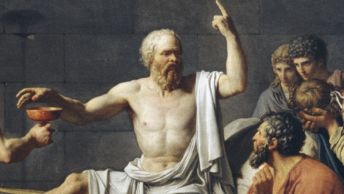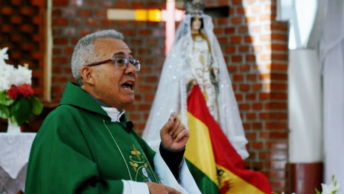The four-year Synod of the Catholic Church is nearing completion. It has been described as a “Journey” that is “both a gift and a task” by which the hierarchy, the clergy, and the laity can join together, learn through their experiences, and improve their service in the Church’s mission.
One especially meaningful suggestion for reaching that mission was published in America Magazine on September 22, 2023. The author was Father Paul D. McNelis, S.J.
Fr. McNelis begins by noting that little attention has thus far been given to the present method of “accountability for performance” in the Church: priests report to their bishops, who in turn report to the Pope. However, he adds, not one of those 3000 bishops has the equivalent of a “board of trustees” to guide his efforts and evaluate his performance. He acknowledges that some bishops may not need guidance, but suggests that many do, and all could benefit from “regular performance reviews.” He likens bishops’ situations to that of medical doctors, college professors, and other professionals, all of whom benefit from periodic evaluation, as do the people they serve.
The guidance and performance reviews of bishops, he suggests, could cover such matters as “the morale of the local clergy, the participation of the laity in the governance of local churches, transparency in decision making, the ability of the bishop and pastors to communicate with one another and with their lay colleagues and confidence in the pastoral care and formation of young people in matters of faith.” These elements of performance could be measured by means of “confidential interviews with clergy and lay leaders by an evaluation team, and . . . more extensive surveys of parishioners.”
Fr. McNelis underscores the fact that he is in no way recommending a “new level of authority between the pope and bishops” but instead the use of procedures to exercise existing authority more effectively.
What impressed me about Fr. McNelis’ essay is both its accuracy in identifying a long-standing problem in the Church and its very reasonable suggestions for solving that problem. I have no doubt that if the hierarchy followed those suggestions, the Catholic Church would regain its status and influence throughout the world. However, I believe the hierarchy may reject this wise counsel for several reasons:
One reason is the existing relationship between the hierarchy and priests and laypeople. This relationship is clearly expressed in the Catechism of the Church.
Concerning bishops:
“In order that the full and living Gospel might always be preserved in the Church the apostles left bishops as their successors. They gave them their own position of teaching authority . . . The apostolic preaching . . . was to be preserved in a continuous line of succession until the end of time . . . So . . . there should be a remarkable harmony between the bishops and the faithful.” (74, 84)
” . . . The task of interpretation has been entrusted to the bishops in communion with the successor of Peter, the Bishop of Rome . . . All the faithful share in understanding and handing on revealed truth. They have received the anointing of the Holy Spirit, who instructs themand guides them into all truth. The whole body of the faithful. . . cannot err in matters of belief. This characteristic is shown in the supernatural appreciation of faith (sensus fidei) on the part of the whole people, when, from the bishops to the last of the faithful, they manifest a universal consent in matters of faith and morals.” (85, 92)
“The task of interpreting the Word of God authentically has been entrusted solely to the Magisterium of the Church, that is, to the Pope and to the bishops in communion with him.” (100)
Concerning priests:
“The priests . . . represent, in a certain sense, the bishop. . . . Priests can exercise their ministry only in dependence on the bishop and in communion with him . . . The bishop considers them his co-workers, his sons, his brothers and his friends, and that they in return owe him love and obedience.” (1567)
“Priests are united with the bishops in sacerdotal dignity and at the same time depend on them in the exercise of their pastoral functions; they are called to be the bishops’ prudent co-workers. They form around their bishop the presbyterium which bears responsibility with him for the particular Church. They receive from the bishop the charge of a parish community or a determinate ecclesial office.” (1595)
Despite the overall suggestion of congeniality in the Catechism, the passages I have put in bold leave no doubt that the bishops possess both authority and power in the Church. The priests are subordinate to them, and their parish assignments depend on the will of their bishops. In any case of a difference in “rank,” the superior can easily be tempted to ignore the ideas of subordinates. That temptation is likely to be especially strong when the “rank” is lesser (among priests) or non-existent (among the laity).
Another reason the hierarchy is unlikely to follow Fr. McNelis’ insightful suggestions is summed up in Lord Acton’s famous 1887 statement, “Power tends to corrupt and absolute power corrupts absolutely,” which referred to religious, as well as to secular leaders. This tendency is characterized by putting one’s own interests above other people’s rights, ignoring the council of others, and/or assuming that one’s personal preference is prompted by the Holy Spirit. The more elevated the secular or religious office, the more power possessed by the officeholders, the greater their vulnerability to corruption, and the less likely they are to consider, let alone embrace, proposals by those of lower status.
A third reason is that the Church’s Doctrine of Infallibility may increase the likelihood of the hierarchy not following Fr. McNelis’ suggestions. For readers who may not be familiar with that doctrine, here is the Catechism’s summary of it:
“The Roman Pontiff, head of the college of bishops, enjoys this infallibility in virtue of his office, when, as supreme pastor and teacher of all the faithful . . . he proclaims by a definitive act a doctrine pertaining to faith or morals . . . The infallibility promised to the Church is also present in the body of bishops when, together with Peter’s successor, they exercise the supreme Magisterium, above all in an Ecumenical Council.” (891)
Put more simply, when a pope makes a statement on faith and morals in the prescribed way, and the bishops concur, it is impossible for either the statement or the concurrence to be mistaken.
This doctrine describes for the Pope and bishops alike a power that sets them apart from all other human beings. To feel that power and believe that it comes directly from the Creator could surely produce a profound sense of humility and a greater openness to truth wherever it is manifested. But given our fallen human nature, it could just as surely lead to a massive expansion of self-esteem that stifles the urge to grow in knowledge and wisdom.
I am confident that the Holy Spirit will offer the hierarchy the grace to embrace Fr. McNelis’ wise counsel. My prayer is that they will accept that grace.
Copyright © 2023 by Vincent Ryan Ruggiero. All rights reserved.








